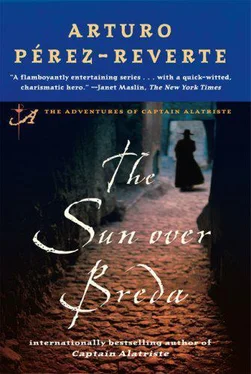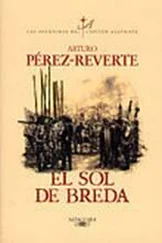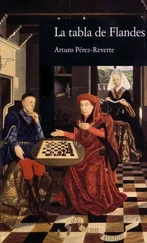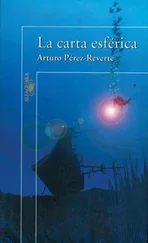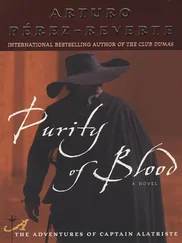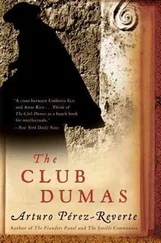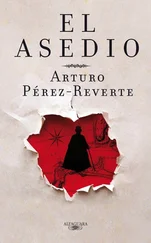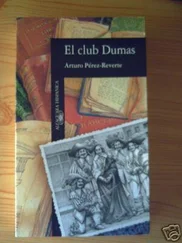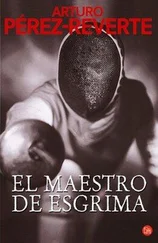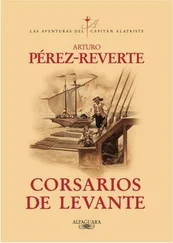Arturo Pérez-Reverte - The Sun Over Breda
Здесь есть возможность читать онлайн «Arturo Pérez-Reverte - The Sun Over Breda» весь текст электронной книги совершенно бесплатно (целиком полную версию без сокращений). В некоторых случаях можно слушать аудио, скачать через торрент в формате fb2 и присутствует краткое содержание. Жанр: Старинная литература, на английском языке. Описание произведения, (предисловие) а так же отзывы посетителей доступны на портале библиотеки ЛибКат.
- Название:The Sun Over Breda
- Автор:
- Жанр:
- Год:неизвестен
- ISBN:нет данных
- Рейтинг книги:5 / 5. Голосов: 1
-
Избранное:Добавить в избранное
- Отзывы:
-
Ваша оценка:
- 100
- 1
- 2
- 3
- 4
- 5
The Sun Over Breda: краткое содержание, описание и аннотация
Предлагаем к чтению аннотацию, описание, краткое содержание или предисловие (зависит от того, что написал сам автор книги «The Sun Over Breda»). Если вы не нашли необходимую информацию о книге — напишите в комментариях, мы постараемся отыскать её.
The Sun Over Breda — читать онлайн бесплатно полную книгу (весь текст) целиком
Ниже представлен текст книги, разбитый по страницам. Система сохранения места последней прочитанной страницы, позволяет с удобством читать онлайн бесплатно книгу «The Sun Over Breda», без необходимости каждый раз заново искать на чём Вы остановились. Поставьте закладку, и сможете в любой момент перейти на страницу, на которой закончили чтение.
Интервал:
Закладка:
“That one won’t feel the cold any longer,” said one of the soldiers.
From the strong accent I did not need to turn to turn around to know that the person who had spoken was Mendieta, a Basque like myself, a thick-browed, burly man from Biscay whose mustache was almost as impressive as my master’s. The little troupe was completed by Curro Garrote, a Malagüeño from Los Percheles, so tanned he looked like a Moor; the Mallorcan José Llop; and Sebastián Copons, an old comrade of Captain Alatriste from earlier campaigns. Copons was a dried-up little man from Aragon, as tough as the mother who gave him birth, and his face might had been carved from the stone of Mallos de Riglos. Sitting nearby were three others from the squad: the Olivares brothers and the Galician, Rivas.
All of them knew of my difficult assignment at the drawbridge and were happy to see me alive and well, though they did not make any great show of it. For one thing, it was not the first time I had smelled powder in Flanders, and, besides, they had their own affairs to think about. Beyond that, they were not the kind of soldier who makes a fuss over something that was, in truth, considered the duty of anyone in the pay of our king. Although in our case—or, rather in theirs, for we mochileros did not have the right to claim benefits or wages—the tercio had gone a long time without seeing the color of a piece of eight.
Nor did Diego Alatriste outdo himself in his welcome. I have already said that he limited his greeting to a slight smile, twisting his mustache as if he were thinking about something else. But when he saw that I was hanging around like a good dog hoping to be petted by its master, he complimented my red velvet doublet and in the end offered me a hunk of bread and some sausages his companions were roasting over the fire. Their clothing was still wet after the night spent in the waters of the canal, and their faces, dirty and greasy from their vigil and the subsequent battle, reflected their exhaustion. They were nonetheless in good humor. They were alive, everything had gone well, the town was again Catholic and subject to our lord and king, and the booty—several sacks and knotted cloths piled in a corner—was reasonable.
“After a three months’ fast from pay,” commented Curro Garrote, cleaning the bloody rings of the dead Dutchman, “this is a reprieve.”
From the other side of the town came the sound of bugles and drums. The fog was beginning to lift, and that allowed us to see a thin line of soldiers moving along the Ooster dike. The long pikes advancing through the last remnants of gray fog resembled a field of swaying reeds, and a short-lived ray of sun, sent ahead as if it were a scout, glinted off the metal of their lances, morions, and corselets and reproduced them in the quiet waters of the canal. At their head came horses and banners bearing the good and ancient cross of Saint Andrew, or of Burgundy: the red aspa insignia of the Spanish tercios.
“Here comes Jiñalasoga,” said Garrote. Jiñalasoga was the nickname the veterans had given don Pedro de la Daga, colonel of the Viejo Tercio de Cartagena. In the soldier’s tongue of the time, jiñar meant—begging your pardon, Your Mercies—“to empty your bowels,” that is, “to shit.” This may sound a little common, here in this tale, but, pardiez , we were soldiers, not San Plácido nuns. As for the soga part, no one who knew our colonel’s taste for hanging his men for disciplinary offenses could harbor any doubt regarding the appropriateness of “rope” in his sobriquet. The fact is that Jiñalasoga, more formally, Colonel don Pedro de la Daga—either will do—was commanding the relief forces of Captain don Hernán Torralba and was coming along the dike to take official possession of Oudkerk.
“He gets here midmorning,” grumbled Mendieta, “after all the slashing’s been done.”
Diego Alatriste slowly got to his feet; I saw that he did so with difficulty and that the leg he had stretched before him was giving him constant pain. I knew that this was not a new wound but, rather, a year-old injury to his hip he’d received in the alleyways near the Plaza Mayor in Madrid at the time of his next-to-last encounter with his old enemy, Gualterio Malatesta. Dampness precipitated a rheumatic pain, and the night spent in the waters of the Ooster was no prescription for a cure.
“Let’s go take a look.”
He smoothed his mustache, buckled on the belt that held his sword and vizcaína dagger, thrust his pistol into his waistband, and picked up the wide-brimmed hat with the perennially frowsy red plume. Then slowly, very slowly, he turned to Mendieta.
“Colonels always arrive midmorning,” he said, and from his cold, gray-green eyes it was impossible to know whether he was speaking seriously or in jest. “Which is why we ourselves must get up so early.”
2. THE DUTCH WINTER
Weeks went by, then months, and we were well into winter. And although our general don Ambrosio Spínola had the rebellious provinces on the rack again, we were losing Flanders; bit by bit it slipped away, until finally we lost it completely. If you will, Your Mercies, consider very carefully that when I say Flanders was slipping away, I mean that only the powerful Spanish military machine maintained the gradually weakening link to those distant lands from which a letter—even by the fastest post horses—took three weeks to reach Madrid. To the north the Estates General, backed by France, England, Venice, and the other enemies of Spain, were being strengthened in their rebellion thanks to the cult of Calvinism, which was more useful in the business dealings of their burghers and merchants than the oppressive, antiquated true religion, which seemed so impractical to those who preferred to deal with a God who applauded revenue, and were shaking off the yoke of a too-distant centralist and authoritarian Castilian monarchy. For their part, the Catholic states of the south, though still loyal, were beginning to grow weary both of the cost of a war that had been going on for eighty years and of the excessive demands and damage done by soldiers who were increasingly thought of as occupying troops. All these things were poisoning the air, and to that we must add the decadence of Spain itself, in which a well-intentioned but ineffective king, an intelligent but overly ambitious prime minister, a sterile aristocracy, a corrupt officialdom, and a clergy as stupid as it was fanatic were hurtling us headfirst into the abyss. Catalonia and Portugal were on the point of withdrawing from the crown; the latter, forever.
Stultified among kings, aristocrats, and priests, with church and civil traditions that diminished those who tried to earn an honorable living with their hands, we Spaniards preferred to seek our fortune by fighting in Flanders or conquering America, pursuing the stroke of luck that would allow us to live like lords without paying taxes or lifting a finger. That was what caused our looms and lathes to fall silent, what depopulated and impoverished Spain, and what reduced us first to a legion of adventurers, then to a people of mendicant hidalgos, and finally to a rabble of base Sancho Panzas. And that was also how the vast heritage bequeathed to our lord and king by his grandfathers, that Spain upon which the sun never set—for when that star sank below one of her horizons it rose upon another—continued to be what she was, thanks only to the gold the galleons brought from the Indies, and the pikes—the famous lances Diego Velázquez would very soon immortalize—of the veteran armies. For those reasons, despite our decadence, we were not yet disdained and were even still feared. So it was timely and just—as well as a slap in the face to other nations—that one could say:
Читать дальшеИнтервал:
Закладка:
Похожие книги на «The Sun Over Breda»
Представляем Вашему вниманию похожие книги на «The Sun Over Breda» списком для выбора. Мы отобрали схожую по названию и смыслу литературу в надежде предоставить читателям больше вариантов отыскать новые, интересные, ещё непрочитанные произведения.
Обсуждение, отзывы о книге «The Sun Over Breda» и просто собственные мнения читателей. Оставьте ваши комментарии, напишите, что Вы думаете о произведении, его смысле или главных героях. Укажите что конкретно понравилось, а что нет, и почему Вы так считаете.
